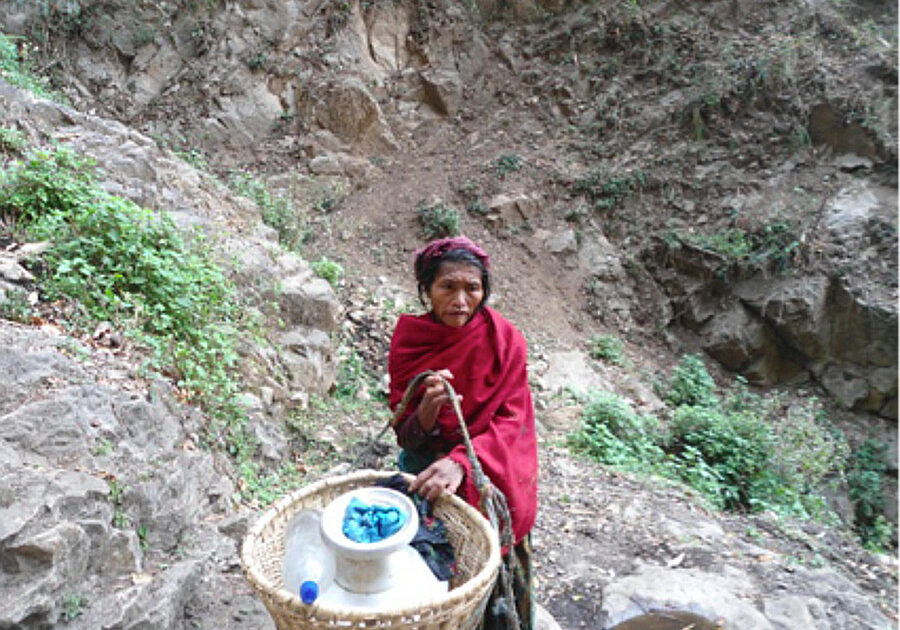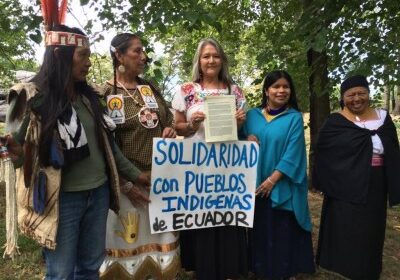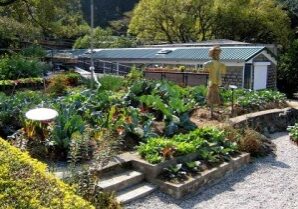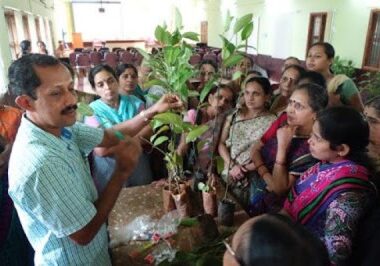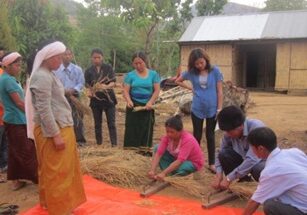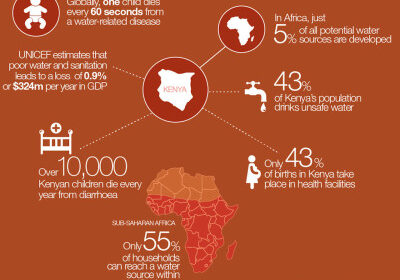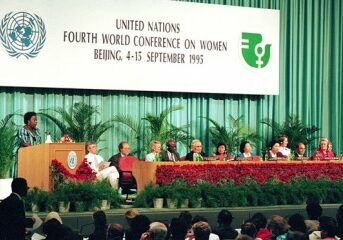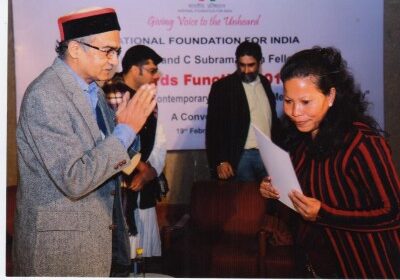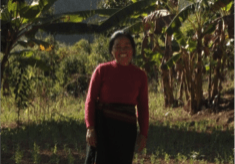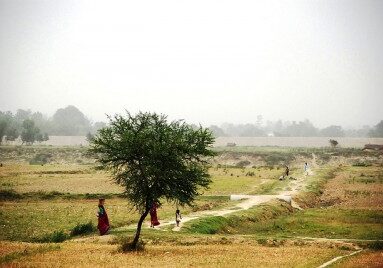- All
- Updates
- WEA Voices
- In the News
We are Responsible for Protecting Nature
By: Katie Douglas, WEA Intern “We Indigenous peoples of this village never thought that protecting natural resources was our responsibility. Now, we know we are responsible for protecting nature.” These are the powerful words of Sani Maya Bote, a farmer and mother from Manahari Village in Kathmandu, Nepal. As a child, Sani remembers the great…
Historic Treaty Across Continents
The Indigenous people of North and South America have come together through a treaty signed by women leaders Casey Camp-Horinek (Ponca), Pennie Opal Plan (Idle No More Bay Area), representatives on the Indigenous Environmental Network’s Delegation for the COP 21 United Nations Summit in Paris, met with three representatives of the Amazon Watch Delegation: Kichwa leader, Patricia Gualinga and…
Small-scale organic farming can feed the world
In our work, we’ve seen the incredible contributions women farmers continue to make in their communities when small farms and home gardens, and their caretakers, are uplifted and respected. This is also something we’re seeing in the news more and more each day—but it’s not a new idea. Obviously, small farmers have known this simple…
Weathering the Storms Together: Grassroots Women’s Response to Climate Change
WEA shares our thoughts on women, climate change and more in Earth Island Journal‘s online edition. “Tomorrow, September 29, is Global Women’s Climate Justice Day of Action. As nations prepare for the UN COP21 climate negotiations in Paris, women across the world will tell their stories, demonstrate their solutions, and demand that our world leaders…
Promoting Political, Social and Cultural Rights of Women to Uplift Sustainability
By: Katie Douglas, WEA Intern When Aring Rengsoring joined the WSDC training program in her village of Aimol Chingnunghut, she was already skilled in farming, weaving, and domestic work. Participating in the WSDC program allowed her to not only pass on these talents to others, but to strengthen her leadership abilities. It was leadership training…
Water Tanks Sustain, Empower Women
At a training with the Global Women’s Water Initiative in East Africa, in 2011, 175 Women received training on how to build new water tanks for their communities, and how to tackle water, hygiene and sanitation issues in their neighborhoods. Prior to the tanks, women sustained injuries from carrying extremely heavy water loads over long…
The SDGs: Landmark achievment, or a step backward?
…The objectives of Beijing were consistent with a recognition of the deeply structural nature of the inequalities experienced by women. By openly challenging austerity programmes and the impact of macroeconomic policies on women, the platform acknowledged that the neoliberal, “trade not aid” model of development was – and is – failing the majority of the…
Recognizing and Uniting Women Leaders in Assam
By: Katie Douglas, WEA Intern All her life Sinumoni Bora has been an advocate on behalf of women’s rights. Sinumoni was born to an impoverished tribal family in the city of Jorhat, India. From an early age she was supporting her family and tutoring other youth. By the time she was an adult, Sinumoni had…
Protecting Forest Livelihoods and Biodiversity in the Face of Climate Change
By: Katie Douglas, WEA Intern “Each time I plant a tree I realize that I am not only contributing in a small way to sustain the livelihood of forest dependents like me, but also toward [addressing] global warming.” In the northeastern state of Manipur, India, Sangpui is a mother of three, and raises her children…
How Climate Change Impacts Women the Most
Read more about the differentiated impacts of climate change, and how the UN hopes to address this with it’s Sustainable Development Goals in this great article from VICE News. “Climate change directly impacts the ability of women to achieve their own human rights and increases gender inequalities,” Eleanor Blomstrom, program director for the Women’s Environment…

